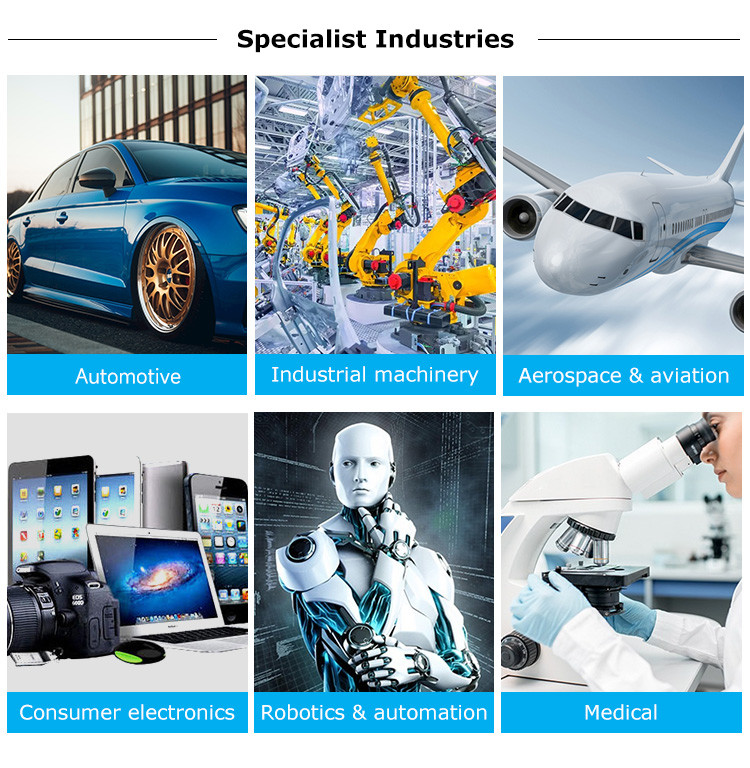Dongguan Yexin Intelligent Technology Co., Ltd. |
|
Verified Suppliers
|
|
CNC, an acronym for computer numerical control, defines the technology behind CNC machining,
where various machining processes are directed and controlled by a computer.
This computerized automation facilitates the production of parts with increased speed, accuracy,
precision, and the ability to achieve more complex geometries compared to manual machining
methods.
Additionally, CNC machining reduces the need for labor-intensive manual machining tasks that
would otherwise be carried out by humans. Although individuals are not physically machining each
part, their role is crucial in programming and operating the CNC machines, ensuring the seamless
execution of every operation.
Product Details
In the realm of CNC machining's turning process, metals take center stage, boasting a diverse
lineup that includes alloy steel, carbon steel, cast iron, stainless steel, aluminum, copper,
magnesium, and zinc.
However, the CNC turning process extends its reach beyond metals, showcasing its flexibility by
seamlessly machining plastic parts. Furthermore, CNC turning proves its adaptability by working
with an array of materials such as ceramics, composites, thermoplastics, and thermosets.
This broad material compatibility underscores the capability of CNC turning to meet the intricate
demands of various manufacturing applications.
Here is a comprehensive overview of the most popular materials.
| The Most Popular Materials | |
| Name | Characteristics |
| Aluminum 6061 | Good strength-to-weight ratio, excellent machinability, low hardness |
| Stainless Steel 304 | Excellent mechanical properties, resistant to corrosion & acid, relatively difficult to machine |
| Brass C360 | High ductility, excellent machinability, good corrosion resistance |
| ABS | Excellent impact resistance, good mechanical properties, susceptible to solvents |
| Nylon (PA6 & PA66) | Excellent mechanical properties, high toughness, poor moisture resistance |
| POM (Delrin) | High stiffness, excellent thermal & electrical properties, relatively brittle |



| Surface Finishes | ||
| Name | Applicable to | Machining marks |
| As machined | Metals, Plastics | Visible, light surface scratches |
| Smooth machining | ||
| Fine machining | Metals | Slightly visible |
| Polishing | Metals | Removed on primary surfaces |
| Bead blasting | Metals | Removed for non-cosmetic, removed on primary surfaces for cosmetic |
| Brushing | Metals | |
| Anodizing Type II | Aluminum | |
| Anodizing Type III | Aluminum | Visible under anodizing |
| Black oxide | Copper, Stainless steel, Alloy steel, Tool steel, Mild steel | Visible |
| Powder coating | Metals | Removed |
| Brushed + electropolishing | Stainless steel | Removed on Primary surfaces |
Specialist Industries
CNC machining stands as a cornerstone in subtractive manufacturing, playing a pivotal role in
numerous industries. Some of the most prominent sectors leveraging CNC machining include:
1. Aerospace: Precision and reliability are non-negotiable in
aerospace applications.
CNC machining is crucial for producing intricate and accurate components for aircraft and
spacecraft, meeting the demanding standards of the industry.
2. Automotive: The automotive sector relies heavily on CNC
machining for the fabrication of
precision parts, contributing to the efficiency, performance, and safety of vehicles.
3. Aviation: Similar to aerospace, the aviation industry benefits
from CNC machining's precision
in crafting components that adhere to strict quality and safety regulations for optimal aircraft
performance.
4. Transportation: Beyond air and land, the transportation
industry, encompassing rail and
maritime sectors, integrates CNC machining for the production of robust and precise
components that endure challenging operational conditions.
These industries showcase the versatility of CNC machining, where
its capabilities are harnessed
to meet the stringent demands of manufacturing in sectors where precision, durability, and
quality are of utmost importance.

Company Profile


FAQ's
1. Why choose CNC machining?
The choice of CNC machining is characterized by its speed, precision, and versatility.
This manufacturing solution distinguishes itself by efficiently producing end-use parts across
various volumes, all without the necessity for significant investments in hard tooling or
elaborate set-ups.
2. How long does delivery time and quotation take?
The delivery time for parts is intricately tied to their complexity. Low-complexity parts usually
have a lead time of 2-3 days, while moderate complexity extends to 2-5 days. High-complexity
parts may necessitate a lead time ranging between 5 and 15 days.
Quoting time is also linked to design complexity, ranging from 1 business day or faster for
simpler designs to 3+ business days for more intricate ones. If you have a design that requires
assessment and quoting, do not hesitate to contact our team.
3. What are the advantages of CNC machining?
CNC machining offers a spectrum of advantages, prominently featuring rapid prototyping and
the expedited production of full-scale parts. Its hallmark is the ability to achieve exceptional
precision and accuracy in manufacturing, catering to tight tolerances for CNC parts of diverse
sizes.
This method stands out for its flexibility, influencing factors such as volume, pricing, lead times,
and the array of materials and finishes available.
4. What are standard machining tolerances?
Standard machining tolerances are set at ± 0.005" or 0.13mm, delineating the acceptable range
for dimensions. For example, if a CNC machining tool carries a tolerance of ± 0.01 mm, it signifies
a permissible deviation of 0.01 mm in each cutting operation.
Leveraging a provided drawing, our CNC machining service can attain part tolerances as precise
as ± 0.0002 in. In cases where no drawing is available, all CNC parts adhere to our ISO 2768
medium standard.
Projects requiring even tighter tolerances, such as ±0.025mm or ±0.001", can be accommodated
with an engineering drawing specifying critical features.